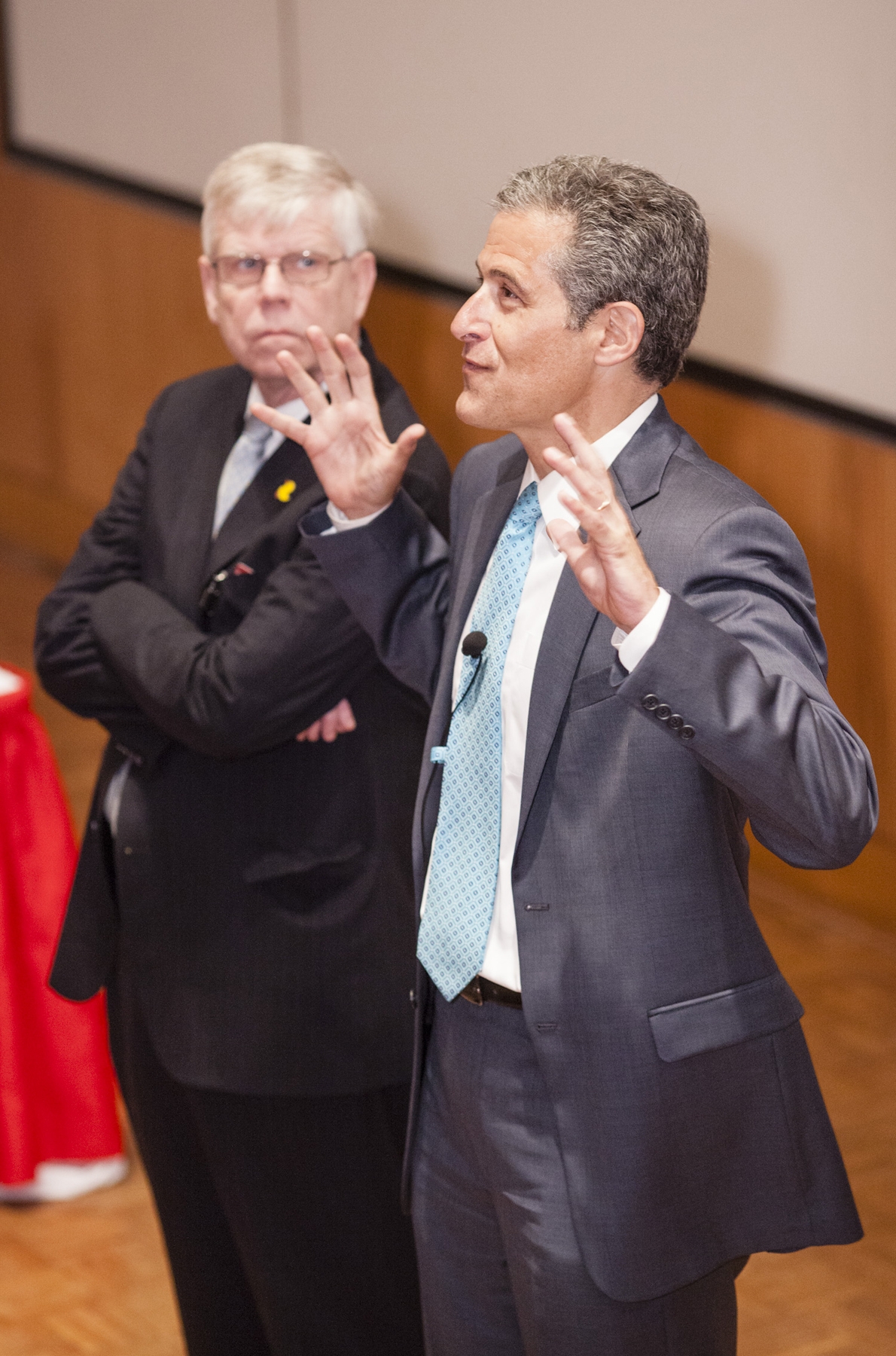Three years ago, as the outbreak of swine flu became a pandemic, Dr. Richard Besser was summoned to the White House.
While briefing President Barack Obama and members of the Cabinet about the virus and the Centers for Disease Control and Prevention's response to it, Dr. Besser, then acting director of the CDC, answered an appropriate question posed by Secretary of State Hillary Clinton: "What's the difference between seasonal flu and pandemic flu?"
"Once she asked that question, I totally relaxed," Dr. Besser said, recalling the scenario earlier this month. "It was actually very reassuring. She's a smart person who had the exact same question reporters had, and I was able to answer it and explain in layman's terms what exactly was going on."
As a reporter and public health expert, Dr. Besser, now ABC News'chief health and medical editor, clearly understands the importance of open communication, particularly amid crisis management. It's a point he emphasized as a guest speaker during Pediatric Grand Rounds May 1 at the Phyllis and David Komansky Center for Children's Health at NewYork-Presbyterian Hospital/Weill Cornell Medical Center. Titled, "A View from Both Sides of the Camera," his presentation strove to remind doctors, residents and medical students the power they have in shaping Americans'understanding of health issues and behaviors.
"In public health, you can do every single thing right, but if you don't have the trust of the population and don't have the trust of the public, you failed," he said. "A lot of that trust comes from communication. Communication is key."
There are myriad outlets through which medical experts can reach a broad audience, Dr. Besser said, which include social media channels.

ABC News Chief Health and Medical Editor Richard Besser, right, with Dr. Gerald Loughlin, the Nancy C. Paduano Professor of Pediatrics and chair of the Department of Pediatrics at Weill Cornell as well as pediatrician-in-chief at NewYork-Presbyterian Hospital Photo credit: Rene Perez
He used Twitter as an example. "While you have 140 characters, you can include a link that takes people to a site for patient support groups," he said. "And that kind of thing, if it goes viral, can have a big impact."
He addressed the medical professionals' own ability to communicate with the media as another example. "When you get a call from a reporter, think about it as an opportunity to educate and figure out what messages you want people to get from this that could improve their health," he said.
But regardless of the medium, Dr. Besser said, these experts need to curtail the habit of using complex medical jargon to explain health concepts.
"One of the problems with technical people — and doctors are the worst at this — when you meet someone either above you in position or you think he or she is smarter than you, you speak like you are a technical expert," he said. "Getting doctors to talk in plain English is a nightmare."
"In health communication, you should ask yourself, 'What is it you're trying to get changed? What action are you looking for people to take?'" he said. "(Working with the media) is a great way to learn how to take something complex and translate it into the kind of language that you should be using with patients every day."
At the White House, standing before the president and the full Cabinet during its first full meeting under the new administration three years ago, Dr. Besser conducted his briefing on the CDC's response to the H1N1 outbreak.
"We were going to follow these principles of open communication, we were going to base what we did on science, we were going to take action that was only directed at mitigating the consequences to people's health," he recalled. "And the president said, 'I want to make sure that with everything we do, our response is based on science.'"
He added, "That message that I was able to communicate back to the people at the CDC was so incredibly uplifting, the idea that science was going to drive the day. We moved forward with a very aggressive strategy."

